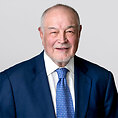MMTC and Clear Channel Continue to Work Toward Greater Media Diversity
In 2009, Clear Channel Communications, the largest owner and operator of AM and FM radio stations in the United States, made history by donating four radio stations to the Minority Media & Telecom Council (MMTC). Last month, Clear Channel gave MMTC two more stations - KFXN-AM in Minneapolis, Minnesota, and WTOC-AM in Newton, New Jersey.
These generous donations have been made as part of the MMTC-Clear Channel Ownership Diversity Initiative, an ongoing program to expand ownership and training opportunities for minorities, women and other underserved groups. To date, this program has achieved a number of successes. For example, last year MMTC announced that two stations had been overhauled and re-launched by minority and women entrepreneurial partners of MMTC. Indeed, whenever MMTC is donated a broadcast station, it’s used to train minorities and women in broadcasting. Training in how to leverage access to capital and the operating expertise that flows from day to day operations is like a glide path to ownership.
MMTC President and Executive Director David Honig has stated that these donations by Clear Channel “demonstrate an unprecedented commitment to media diversity by our nation’s largest radio owner. MMTC appreciates the opportunity to work with Clear Channel to enhance minority ownership and representation in this vital sector. We look forward to continuing our work with them and with other owners through MMTC’s Media Brokerage.”
We need both government and private sector initiatives to promote diversity. Private sector efforts are certainly essential given the exceedingly poor state of minority ownership in the United States. MMTC has found that minority radio ownership decreased by nine percent between 2007 and 2009. Moreover, four of the top five Hispanic-owned and -controlled radio companies in 2007 are bankrupt today. Barriers to entry remain dauntingly high, especially for minorities who, as a group, lack robust access to capital and other inputs necessary for launching a new radio or television station.
Formal government action to address these issues has been sporadic. Tax and regulatory incentives to increase minority media participation have been scrapped. Fortunately, the Federal Communications Commission (FCC) appears ready to re-engage on these issues after a long hiatus. The landmark report – The Information Needs of Communities – released by the FCC, has put forward a bold plan for modernizing regulation in this sector, enhancing diversity, and facilitating our nation’s transition to a world dominated by IP-enabled media.
Although the Internet holds enormous promise to equalize minority representation in the media sector, the FCC and other policymakers must not lose sight of the importance of traditional media in the near-term. For example, the FCC astutely observes in its Information Needs of Communities report that over-the-air radio remains a profoundly important medium for Blacks and Hispanics across the country. Moreover, far too many minorities remain unconnected to broadband for many Web-based solutions to be truly effective. Though the Internet is well positioned to usher in a new era of inclusive media participation and production, these results remain far out on the horizon for minorities, as little more than half of all Black and Hispanic households have adopted broadband.
As we continue our transition to a digital society built upon broadband connections, collaborations like those between MMTC and Clear Channel remain essential to facilitating greater minority participation in traditional media. Without a sufficiently inclusive strategy for media of all types, minorities on the wrong side of the digital divide are also at risk of losing access to vital media platforms like terrestrial radio.
In these economically challenging times, a tax deduction for donating a station to a nonprofit organization could be attractive for many broadcasters. MMTC encourages other companies to follow Clear Channel’s lead in working with MMTC to promote media diversity initiatives.
***
Henry Rivera and Deborah Taylor Tate are former members of the Federal Communications Commission. Mr. Rivera is the Chair of MMTC and Ms. Tate is a member of the MMTC Board of Directors.
